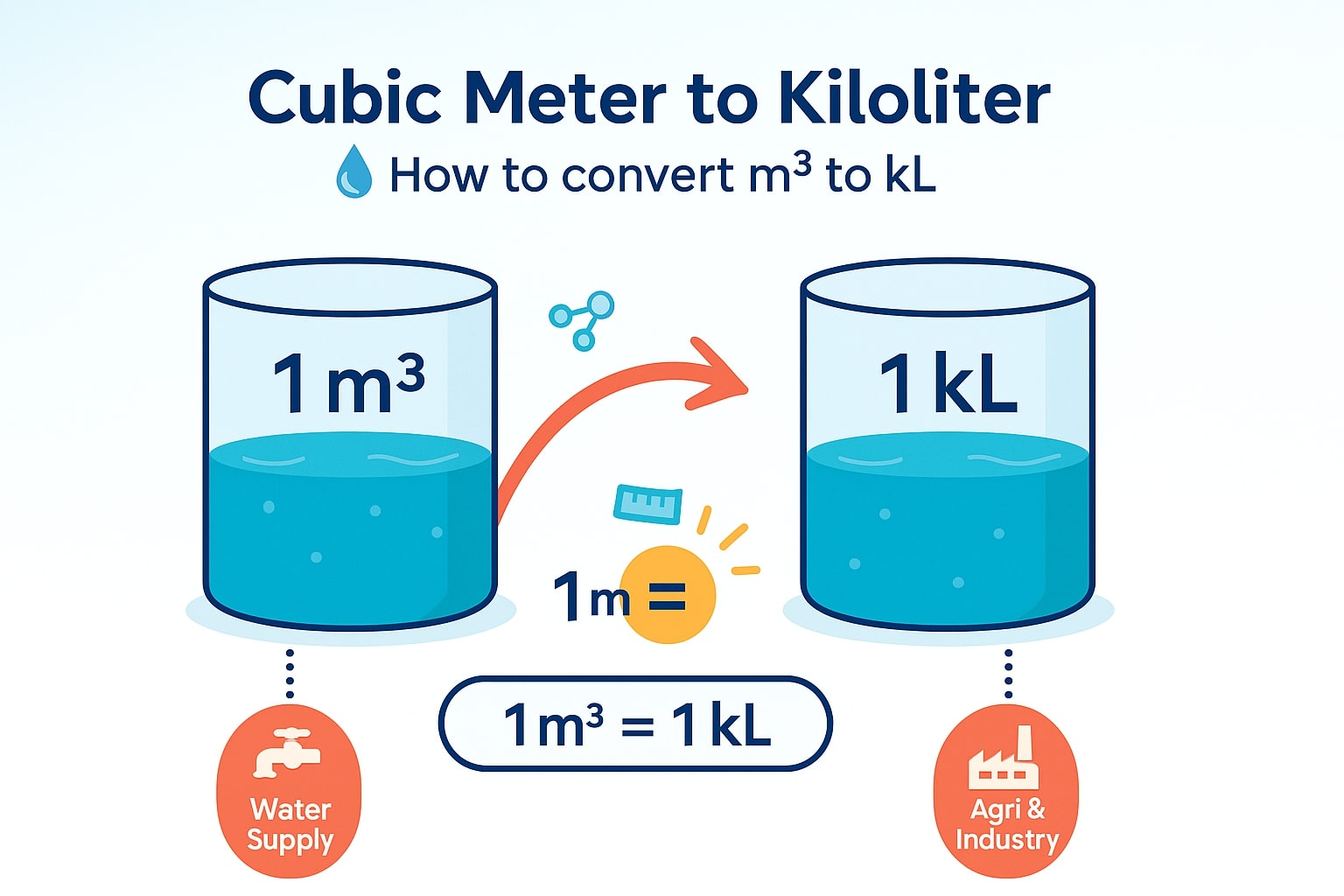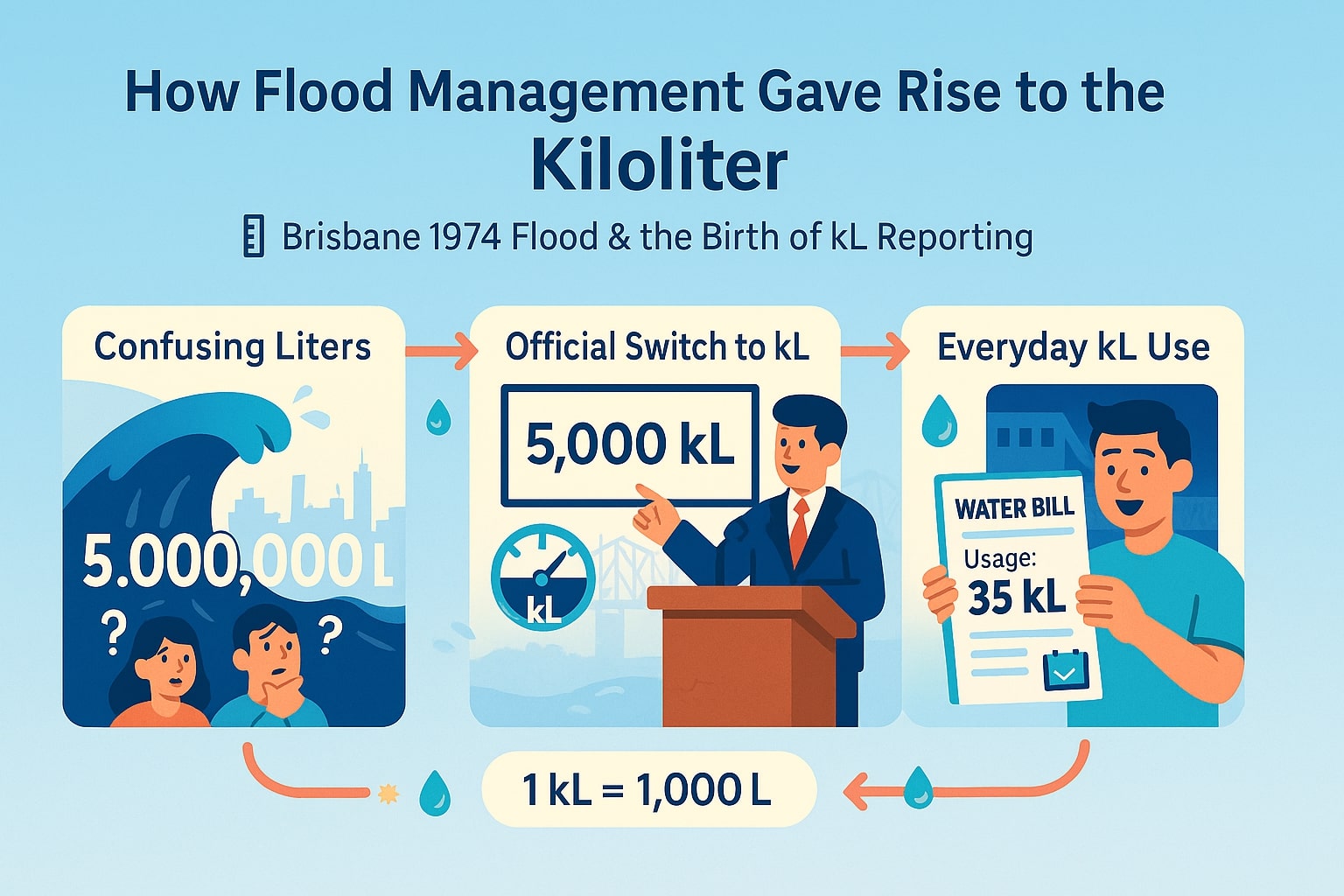cubic meter to kiloliter – How to convert m³ to kL
Trying to convert cubic meter to kiloliter? You’re in the right place. These two units are often used interchangeably, especially in industries where large volumes of liquids are handled. Whether you’re planning water distribution, managing agricultural output, or analyzing logistics reports, knowing this conversion can simplify your work and reduce costly errors.
For more volume conversions across different units like gallons or liters, explore our Volume Converter. You can also browse through other unit types in our all-in-one Conversion Tool section.
What is a Cubic Meter (m³)?
A cubic meter (m³) is the SI (International System of Units) standard for measuring volume. It’s defined as the space occupied by a cube with sides one meter long. This unit is widely used in both technical and non-technical fields due to its scale and precision.
You’ll find cubic meters used in:
-
Shipping and freight calculations
-
Architecture and construction volume assessments
-
Utility billing systems (water, gas, etc.)
-
Scientific experiments requiring accurate volumetric control
To give you a better sense of its size, 1 cubic meter is equal to:
-
1,000 liters
-
35.3147 cubic feet
-
Approximately 220 gallons (UK) or 264 gallons (US)
Because of its connection to other metric units, converting from m³ to other units is seamless and avoids rounding inconsistencies.
What is a Kiloliter (kL)?
A kiloliter (kL) is a metric unit of volume equal to 1,000 liters—exactly the same volume as one cubic meter. While the unit isn’t as commonly used in consumer-facing contexts as liters or milliliters, it plays a vital role in:
-
Bulk storage for liquid food products
-
Water usage tracking for farming or municipalities
-
Disaster response, such as tanker deliveries during droughts
-
Wholesale beverage and dairy operations
Because kiloliters are tied to the liter, this unit is easy to understand for anyone familiar with metric liquid measurements. Think of a kiloliter as a "mega liter" for practical purposes—it’s easier to say and write than “1,000 liters” when discussing larger volumes.

How to Convert Cubic Meter to Kiloliter
Here’s the good news: 1 cubic meter equals exactly 1 kiloliter.
They are two different names for the same value in volume.
Conversion formula: kL = m³ × 1
Example:
If you have a water tank with a capacity of 4.75 m³, that means it holds 4.75 kL as well.
No further math is needed. No decimal conversions. Just a clear, direct equivalence.
This makes m³ to kL one of the simplest conversions in the entire metric system.
Did you know?
-
One kiloliter of drinking water is enough to supply a family of four for over two days, based on average U.S. household consumption.
-
In Australian suburban homes, water bills are often calculated in kiloliters. It’s common for households to use about 15–30 kL per month, depending on weather and garden usage.
-
A milk delivery truck can carry around 12 kL of milk per trip, enough to fill roughly 48,000 small cartons (250ml each) before pasteurization.
-
The human body contains about 42 liters of water, so a kiloliter would equal the hydration content of nearly 24 people combined.
-
During large outdoor festivals, portable water tanks are measured in kiloliters to ensure crowd safety and sanitation. A 10 kL tank can support over 1,000 people for a day.
-
A rainwater harvesting system installed on a 100m² roof in a wet region can collect over 60 kL of water per year, cutting down water bills significantly.
How Flood Management Gave Rise to the Kiloliter
After a major flood event in Brisbane, Australia in 1974, local authorities faced challenges in communicating water volume and flood data to the public. Using liters created unnecessarily large numbers that confused residents and media.
In the aftermath, officials promoted the kiloliter as a standard unit for flood reporting, water allocation, and emergency management. This shift helped simplify communication and reduce misinterpretation of data during crisis events.
Today, kiloliters are widely used in Australian water utilities and are printed directly on household bills—making it easier for citizens to monitor usage and conserve resources.

Conclusion
Although cubic meter and kiloliter are technically the same, the context in which they’re used varies. Engineers, architects, and logistics professionals may lean toward cubic meters due to industry conventions, while utilities, agriculture, and disaster response agencies often prefer kiloliters for their direct connection to liters.
Need to calculate or convert between gallons, cubic feet, or liters? Try our fast and flexible Volume Converter or explore all measurement tools with our Conversion Tool.
At Jetcalculator, we simplify your numbers—so your decisions are clearer, faster, and smarter.

